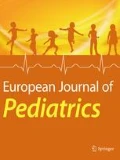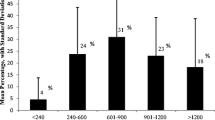Abstract
Treatment of hyperphenylalaninaemias due to phenylalanine hydroxylase deficiency with a low phenylalanine (Phe) diet is highly successful in preventing neurological impairment and mental retardation. There is consensus that, for an optimal outcome, treatment should start as early as possible, and that strict blood Phe level control is of primary importance during the first years of life, but for adolescent and adult patients international treatment recommendations show a great variability. A working party of the German Working Group for Metabolic Diseases has evaluated research results on IQ data, speech development, behavioural problems, educational progress, neuropsychological results, electroencephalography, magnetic resonance imaging, and clinical neurology. Based on the actual knowledge, recommendations were formulated with regard to indication of treatment, differential diagnosis, and Phe level control during different age periods. The development of the early-and-strictly-treated patient in middle and late adulthood still remains to be investigated. Therefore, the recommendations should be regarded as provisional and subject to future research. Efficient treatment of phenylketonuria has to go beyond recommendations for blood Phe level control and must include adequate dietary training, medical as well as psychological counselling of the patient and his family, and a protocol for monitoring outcome.
Conclusions Early-and-strictly-treated patients with phenylketonuria show an almost normal development. During the first 10 years treatment should aim at blood Phenyl-alanine levels between 40 and 240 μmol/L. After the age of 10, blood phenylalanine level control can be gradually relaxed. For reasons of possible unknown late sequelae, all patients should be followed up life-long.
Similar content being viewed by others
Author information
Authors and Affiliations
Additional information
Received: 11 July 1997 / Accepted in revised form: 25 August 1998
Rights and permissions
About this article
Cite this article
Burgard, P., Bremer, H., Bührdel, P. et al. Rationale for the German recommendations for phenylalanine level control in phenylketonuria 1997. Eur J Pediatr 158, 46–54 (1999). https://doi.org/10.1007/s004310051008
Issue Date:
DOI: https://doi.org/10.1007/s004310051008



